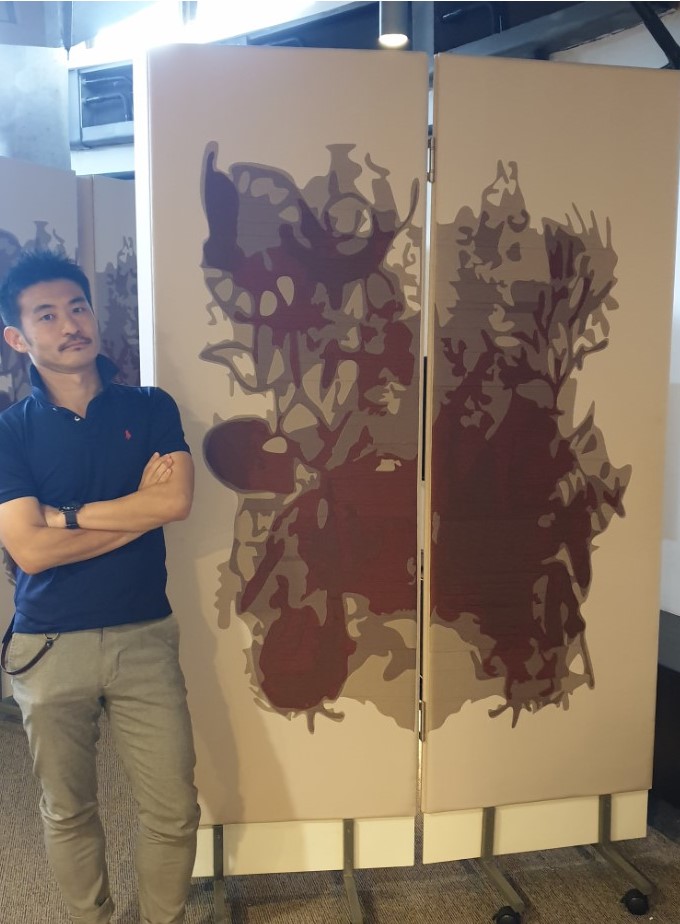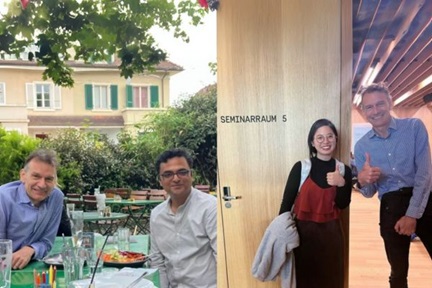Research Highlights: Interview With Asst Prof Azusa Katagiri
1. Can you describe your role at NTU?
I am an assistant professor of Public Policy and Global Affairs
in the School of Social Sciences at Nanyang Technological University (NTU). I'm
teaching international relations and quantitative methods. My area of research
includes interstate conflict, foreign policy, bureaucratic decision-making, and
statistical and computational methods.
2. You have an interesting journey before you embarked on your
academic path. What made you choose academia?
I enjoyed my time as a diplomat in the Ministry of Foreign
Affairs in Japan. But after several years, I realized that I would like to
challenge myself academically. I personally like to see my input and the
resulting achievement in a tangible manner, which is difficult to achieve in a
bureaucratic structure.
When I decided to change my career, two professors had a
significant influence on my decision; Bruce Bueno de Mesquita at New York
University and Kiichi Fujiwara at the University of Tokyo. The way they taught
political science was really exciting, and I saw how much they enjoyed
teaching. I learned a lot from them before pursuing my Ph.D, and their guidance
helped me to imagine what it is like to be an academic. I completed my Ph.D. in
Political Science from Stanford University in 2016. I was also a postdoctoral
fellow in the Weatherhead Center for International Affairs at Harvard
University and New York University/Columbia University from 2016 to 2018. I
became Assistant Professor at NTU in 2018.
3. Was it challenging to change your career path?
As I changed my career in my thirties, it was particularly
challenging. I would not recommend it to everyone. I think it's a bit late to
learn something like programming, basic math, and statistics from scratch in a
graduate school. I wished I could have started my academic training earlier. On
the other hand, experience matters in social sciences; my professional
experience has been very beneficial to my research.
4. Would you say your time in ministry gave you practical
experience, and now you are benefitting from it theoretically?
As I study crisis diplomacy and bureaucratic decision-making in
international relations, I greatly benefit from my diplomatic engagement. I had
a chance to observe how political leaders and bureaucrats proceed with their
routine work, how they corresponded with foreign counterparts, and when and how
they are influenced or sometimes constrained by public opinion. My professional
experience is a great asset, and it helps my research particularly when I come
up with research ideas and empirical designs.
5. After all these journeys, what led you to join NTU?
I felt like spending more time in foreign countries. After more
than ten years in the US, another Asian country apart from Japan, especially
Singapore, sounded appealing.
6. Was your research interest reshaped after coming to an Asian
country?
I studied foreign policy-making processes in the U.S. because the U.S. has one of the most transparent government document declassification policies in the world. Scholars could utilize policy outcomes, key events, official statements, or public opinion to study crisis diplomacy and foreign policy. However, important decisions are made behind the scene. This is the reason why declassified information is the best source of information for studying government decision-making. Having said that, I would be happy to study various cases in different countries if the fine-grained data on conflict decision-making exists.
After coming back to Asia, I'm more interested in the rise of
China, especially how it will reshape the regional order in Asia and the
dynamics of U.S.-China relations. So yes, my research interests have gradually
shifted towards international relations in Asia. I am considering what rigorous
empirical research I could do regarding this region.
7. What do you enjoy doing beyond your research?
Jogging is my relaxation routine. When I was in college, I was a
middle-distance runner in the track and field team. I also enjoy trying various
cuisines: Southeast Asian, Middle Eastern, Latin American, etc.


ca4d2bf9-0905-4231-8e52-674ddd25dcc2.tmb-listing.jpg?Culture=en&sfvrsn=24c71099_1)

edc9e8e3-cce8-4c19-b901-256c5190dff3.tmb-listing.jpg?Culture=en&sfvrsn=28c0a899_1)
88678a50-0e02-4e6f-a653-7d3352ab2c19.tmb-listing.jpg?Culture=en&sfvrsn=50a39a1e_1)
.tmb-listing.jpg?Culture=en&sfvrsn=7f15f9ca_1)
